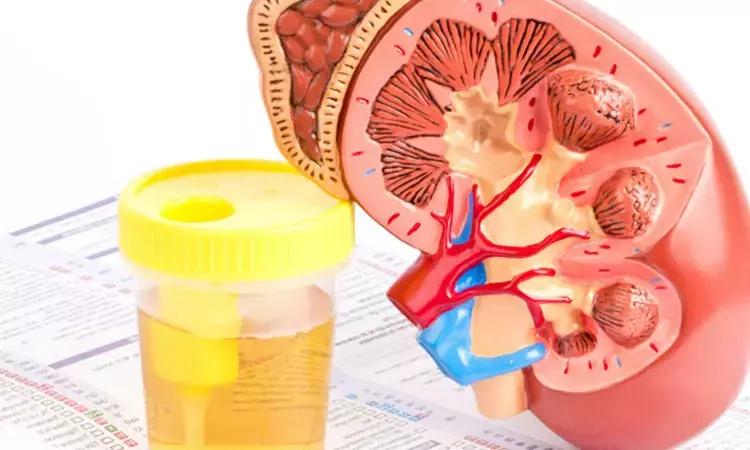Leukocyturia And Hb Early Indicators Of Kidney Injury Among Heat-Stressed Male Workers
- byDoctor News Daily Team
- 16 July, 2025
- 0 Comments
- 0 Mins

U.S.A: According to a study published in BMJ Open, leukocyturia and Hb, which can both be measured using point-of-care methods, may be early signs of kidney damage and a risk for eGFR reduction in heat-stressed male workers.
In order to better understand the causes of chronic kidney disease of non-traditional origin (CKDnt), Dr. Erik Hansson remarked that "this can enable individual-level prevention and research."
Over the past few decades, a chronic kidney disease epidemic with non-traditional origins (CKDnt) has resulted in tens of thousands of untimely deaths in Mesoamerica. Research suggests that physically taxing employment in the heat is a major driver of disease initiation and/or progression, even though the actual etiology is unknown.
In a group with a high risk of developing CKDnt, the authors sought to uncover readily accessible early markers of rapid kidney function deterioration.
In this explorative research group, the efficiency of biomarkers measured during harvest for prediction of cross-harvest renal function loss was assessed, and the most significant biomarker was then assessed in an independent confirmation group.
For this objective, 39 male sugarcane cutters from El Salvador were sampled nine times before and after each bimonthly work shift during harvest. During two harvests, 371 male sugarcane cutters from Nicaragua were examined as part of routine surveillance. During the 5-to-6-month harvest season, cutters engaged with great physical activity at wet-bulb globe temperatures that were typically above 29°C for 6 to 8 hours per day, six days a week.
The primary outcome was the variation in estimated glomerular filtration rate (CKD Epidemiology Collaboration) across the harvest season (ΔeGFRcross-harvest).
Major highlights of the study:
The most promising measure in the El Salvadoran group, accounting >25% of ΔeGFRcross-harvest variance at 8/9 occasions during harvest, was dipstick leukocyturia following work shift.
Fever, little or dark urine, cramps, headache, dizziness, and stomach pain were all linked to leukocyturia in the two weeks prior.
Additionally predictive of ΔeGFRcross-harvest were decreasing blood haemoglobin (Hb) and eGFR during harvest.
In the Nicaraguan confirmation dataset, individuals with ≥++ leukocyturia at any sampling time during harvest had a poorer ΔeGFRcross-harvest of 13 mL/min/1.73 m2 (95% CI 10 to 16 mL/min/1.73 m2) than individuals without leukocyturia records.
The authors concluded that the development of markers that enable early detection of kidney damage at the individual level could make a significant contribution to prevention through the removal of risk factors as well as to understanding the causes of and reversing the CKDnt epidemic.
"Even though early detection of CKDnt risk in certain employees may prove to be a useful tool for prevention, there is still a need to comprehend and take action against the pathophysiological mechanisms and harmful work behaviors that are fueling the CKDnt epidemic," they added.
Reference
Hansson E, Wesseling C, Wegman D, et al Point-of-care biomarkers for prediction of kidney function trajectory among sugarcane cutters: a comparative test accuracy study BMJ Open 2022;12:e060364.
doi: 10.1136/bmjopen-2021-060364
Disclaimer: This website is designed for healthcare professionals and serves solely for informational purposes.
The content provided should not be interpreted as medical advice, diagnosis, treatment recommendations, prescriptions, or endorsements of specific medical practices. It is not a replacement for professional medical consultation or the expertise of a licensed healthcare provider.
Given the ever-evolving nature of medical science, we strive to keep our information accurate and up to date. However, we do not guarantee the completeness or accuracy of the content.
If you come across any inconsistencies, please reach out to us at
admin@doctornewsdaily.com.
We do not support or endorse medical opinions, treatments, or recommendations that contradict the advice of qualified healthcare professionals.
By using this website, you agree to our
Terms of Use,
Privacy Policy, and
Advertisement Policy.
For further details, please review our
Full Disclaimer.
Recent News
DME Haryana round 3 NEET counselling dates revised
- 27 October, 2025
Hospital lapse: GB Pant website continues to name...
- 27 October, 2025
NEET counselling: MP DME releases final vacancies...
- 27 October, 2025
Novo Nordisk gets MHRA nod for Concizumab to preve...
- 27 October, 2025
Daily Newsletter
Get all the top stories from Blogs to keep track.


0 Comments
Post a comment
No comments yet. Be the first to comment!